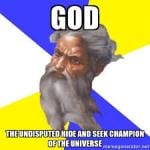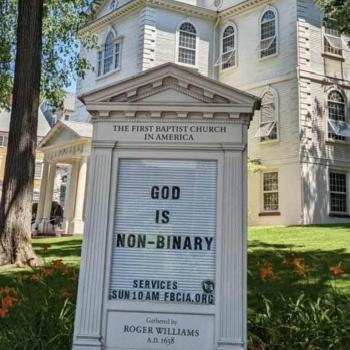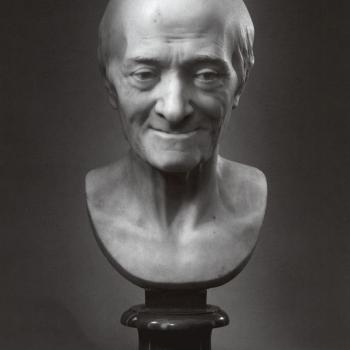In the eight-plus years that I’ve been writing this blog, I’ve occasionally been asked what a “Freelance Christian” is. I call myself a freelance Christian because I don’t believe that any particular doctrinal formulation of the Christian faith is satisfactory. This is not because I’m still looking for the doctrinal package for Christianity that fits my own eclectic faith most closely; it’s because I don’t believe Christianity can be packaged in a doctrinal statement at all. Jesus did not come to establish a new set of beliefs. Jesus came to show us a new way of life, a new way of being in the world and with that which is greater than us.

This is why I am relatively comfortable with also describing myself as a “progressive” Christian, since the Christians I know who describe themselves that way tend not to be trying to clean up doctrinal statements. Instead, they seek to discover how the heart of the gospel is relevant to and can be lived out in our contemporary world. Choosing to understand Christianity as something that one lives rather than something that one believes is, of course, problematic for those whose Christianity is more about orthodoxy (what you believe) than about orthopraxy (what you do).
I was asked once a number of years ago when presenting a paper at an ecumenical institute the following question: “Doesn’t a Christian have to believe something with certainty?” My response—“I don’t know . . . do I?”—led to a conversation about how such a cavalier attitude could propel a Christian down the slippery slope to atheism. I recently came across an article that expresses the same concerns.
On The Gospel Coalition’s website a while ago, Alisa Childers worries that progressive Christians are in danger of sliding down just that slippery slope.
https://www.thegospelcoalition.org/article/3-beliefs-progressive-christians-atheists-share/
After providing a few anecdotal stories to illustrate her point, Childers identifies three specific ideas that progressive Christians and atheists share, suggesting that believing the same things in some contexts probably means that they share a whole bunch of other beliefs as well. If so, then perhaps there really isn’t any difference between progressive Christians and atheists at all.
The professor in me wants to spend a paragraph or two on just how flawed that logic is and to point out that “slippery slope” reasoning is one of the first informal logical fallacies freshmen study in Logic 101, but I’ll leave that aside in order consider one of the three ideas Childers mentions that progressive Christians and atheists share. She is concerned that such Christians and atheists do not believe that the problem of evil has been resolved (she’s also concerned that both parties think the Bible is unreliable and support moral beliefs that need not include God).
As a philosophy professor for the past thirty years and a Christian since around the time I was conceived, I know something about the problem of evil. I have taught two honors courses on it in the past five years and am currently teaching an entirely different course around this problem. In her essay, Childers implies that as progressive Christians slide toward atheism, they are sliding away from Christianity’s solution to the problem of evil.
Let me put my cards on the table: There is no version of Christianity that “solves” the problem of evil, as if this problem is a logical puzzle or a Rubik’s cube. What Christianity provides is far better than a “solution,” but recognizing this requires a willingness to rethink some doctrinal “givens” and to kick some sacred cows.
The problem of evil is simple to state. It involves four claims that are logically incompatible:
- God is all-good (omnibenevolent)
- God is all-knowing (omniscient)
- God is all-powerful (omnipotent)
- Evil exists
The first three claims are fundamental to traditional theistic belief, while the truth of the fourth claim is self-evident to anyone who is the least bit observant of our surrounding world. Logically, all four claims cannot be true simultaneously. Pick your favorite three to double down on, and the fourth has to be false. Which sucks, because any committed theist who is also an observant human being wants to affirm all four claims.
The problem of evil is no challenge for an atheist, of course, since an atheist denies the truth of all of the first three claims. The theist, Christian or otherwise, who tries to keep all four balls in the air simultaneously will soon find that it cannot be done. Which is not to say, of course, that heroic efforts have not been made to do so. From denying that evil is real to throwing in the towel and saying that the apparent problem is only a result of our limited human knowledge, implying that there is a divine logic in which all of these are compatible, there is no end of efforts to make our favored beliefs and reality hang together.
My own choice is to reject #3 and to say that, for good reasons, God is not omnipotent. Since I believe that God is a God of love, and since I also believe that love and power are incompatible on a deep level, I believe that God chooses to diminish divine power in the interest of lovingly providing human beings with the free choice to return that love (or not), as well as the opportunity to take responsibility for their choices. Once free choice is involved, all bets are off, since there is no guarantee that we will choose wisely, lovingly, or well. Hence evil. But a God who chooses to diminish divine power is not the traditional monotheistic God, as many traditional Christians have been happy to remind me over the years.
As we enter the Advent and Christmas seasons, I’m reminded that the foundational story of Christianity, the Incarnation, is a story of diminishment, of weakness, and of overwhelming love. God chooses to address the human condition by becoming human, by embedding divinity in humanity. This is not a “solution” of a “problem”—this is a mystery that transcends doctrinal parsing and logical analysis. Our world is filled with goodness and evil, love and abuse, vulnerability and power, and every other contradiction imaginable.
The heart of Christianity asks us to embrace being the vehicles of the divine in this world and to not be satisfied with or settle for a faith that assures us that it will all work out in the end. There is at least one important truth that Christians and atheists can agree on—human beings are the primary way that goodness gets into a world that is badly in need of light. Acting on that truth does not require any specific doctrinal framework. Rather, it requires the conviction that each person is uniquely qualified and situated to be an instrument of goodness.

















